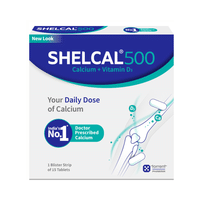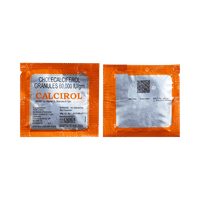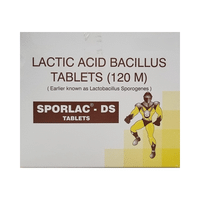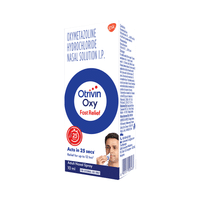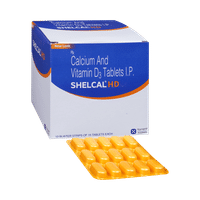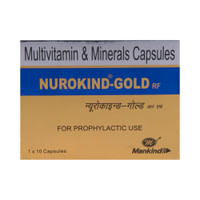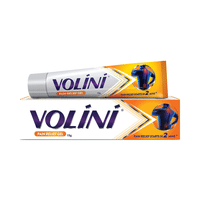Clyora-P DS Oral Suspension
Rs.63for 1 bottle(s) (60 ml Oral Suspension each)
Composition FOR Clyora-P
Chlorpheniramine Maleate(2mg/5ml),Paracetamol(250mg/5ml),Phenylephrine(5mg/5ml)food interaction for Clyora-P
alcohol interaction for Clyora-P
pregnancy interaction for Clyora-P
lactation interaction for Clyora-P
food
alcohol
pregnancy
lactation
Clyora-P DS Oral Suspension may be taken with or without food, but it is better to take it at a fixed time.
Take it with food if stomach upset occurs.
None
Take it with food if stomach upset occurs.
None
CAUTION
It is unsafe to consume alcohol with Clyora-P DS Oral Suspension.
UNSAFE
Clyora-P DS Oral Suspension may be unsafe to use during pregnancy. Although there are limited studies in humans, animal studies have shown harmful effects on the developing baby. Your doctor will weigh the benefits and any potential risks before prescribing it to you. Please consult your doctor.
CONSULT YOUR DOCTOR
Clyora-P DS Oral Suspension is probably safe to use during breastfeeding. Limited human data suggests that the drug does not represent any significant risk to the baby.
SAFE IF PRESCRIBED
SALT INFORMATION FOR Clyora-P
Chlorpheniramine Maleate(2mg/5ml)
Uses
Chlorpheniramine Maleate is used in the treatment of allergic conditions.
How it works
Chlorpheniramine Maleate is an antiallergic medication. When your body is exposed to an allergen (pollen, animal dander, house dust etc.), it produces a chemical called histamine. This causes watery eyes, runny or blocked nose, sneezing, skin rashes, itching etc. Chlorpheniramine Maleate works by blocking the action of histamine, thereby relieving these symptoms.
Common side effects
Dryness in mouth, Sleepiness, Nausea, Headache, Sedation, Difficulty in paying attention, Impaired coordination, Dizziness, Blurred vision, Fatigue
Paracetamol(250mg/5ml)
Uses
Paracetamol is used for pain relief and fever. It is used to relieve pain in conditions like headache, muscle pain, or dental pain.
How it works
Paracetamol is an analgesic (pain reliever) and anti-pyretic (fever reducer). It works by blocking the release of certain chemical messengers that cause pain and fever.
Common side effects
Nausea, Vomiting, Insomnia (difficulty in sleeping), Headache, Constipation, Itching, Nephropathy, Hypersensitivity, Platelet disorders, Depression, Confusion, Hallucination, Abnormal vision, Hypoglycemia (low blood glucose level), Sterile pyuria, Liver toxicity, Hemorrhage
Phenylephrine(5mg/5ml)
Uses
Phenylephrine is used in common cold.
How it works
Phenylephrine is a decongestant. It works by narrowing the small blood vessels which provides temporary relief from inflammation (redness and swelling) and discomfort.
Common side effects
Nausea, Vomiting, Headache, High blood pressure, Arrhythmia (irregular heartbeats), Blurred vision, Breathlessness, Itching, Restlessness, Reflex bradycardia, Excitation, Epigastric pain, Neck pain, Tremors, Hypertensive crisis, Eye pain, Stinging in the eyes, Photophobia, Conjunctival sensitivity, Preterm and low birth weight infants, Fainting, Myocardial infarction, Subarachnoid hemorrhage
SUBSTITUTES FOR Clyora-P
118 Substitutes
118 Substitutes
Sorted By
- Fecure Plus Oral Suspension(60 ml Oral Suspension in bottle)Samridhi PharmacareRs. 1.05/ml of Oral Suspension
 Rs. 65same price
Rs. 65same price - Levotair-Cold DS Oral Suspension(60 ml Oral Suspension in bottle)Hilbert HealthcareRs. 1.21/ml of Oral Suspension
 Rs. 75pay 15% more per ml of Oral Suspension
Rs. 75pay 15% more per ml of Oral Suspension - Lemolincuts DS Plus Oral Suspension(60 ml Oral Suspension in bottle)Yash Pharma Laboratories Pvt LtdRs. 1.13/ml of Oral Suspension
 Rs. 70.10pay 8% more per ml of Oral Suspension
Rs. 70.10pay 8% more per ml of Oral Suspension - Antisnuf Duo Oral Suspension(60 ml Oral Suspension in bottle)Ampira Biotechnics Pvt LtdRs. 0.89/ml of Oral Suspension
 Rs. 55save 15% more per ml of Oral Suspension
Rs. 55save 15% more per ml of Oral Suspension - Skycold Oral Suspension(60 ml Oral Suspension in bottle)Skymax Life Science Pvt LtdRs. 0.92/ml of Oral Suspension
 Rs. 57save 12% more per ml of Oral Suspension
Rs. 57save 12% more per ml of Oral Suspension
Expert advice FOR Clyora-P
- Avoid driving or operating dangerous machinery as it may decrease alertness.
- Avoid consuming alcohol when taking the Chlorpheniramine Maleate, as it may cause excessive sleepiness or drowsiness.
Frequently asked questions FOR Clyora-P
Chlorpheniramine Maleate
Q. Does chlorpheniramine or chlorpheniramine maleate cause increase in blood pressure/ drowsy/non drowsy/sedating/get you high/keep you awake/sleepiness/make you tired/weight gain?
Chlorpheniramine causing these side effects is common or rare. Always consult your doctor, if you experience any of these side effects
Q. Is chlorpheniramine like Benadryl?
No, chlorpheniramine is different from Benadryl
Q. Is chlorpheniramine prescription?
Yes, it is available with doctor’s prescription only
Paracetamol
Q. What if I vomit after taking Paracetamol?
If you vomit in less than 30 minutes after having a dose of Paracetamol tablets or syrup, retake the same dose again. If you vomit after 30 minutes of a dose, you do not need to take another one until the next standard dose.
Q. When will I feel better after taking the Paracetamol?
Usually, you will start feeling better after about half an hour of taking a Paracetamol.
Q. How often can I take the Paracetamol?
You should only take four doses of Paracetamol in 24 hours. There should be a gap of at least 4 hours between two doses. Do not take Paracetamol for more than 3 days without consulting a doctor first.
Phenylephrine
Q. Is it safe to use Phenylephrine?
Yes, Phenylephrine is safe for most of the patients. However, in some patients, it may cause side effects like nausea, vomiting, headache, fatigue, dizziness, dryness in the mouth, sleepiness and allergic reaction. If you experience any persistent problem while taking this medication, inform your doctor as soon as possible.
Q. Can the use of Phenylephrine cause dizziness?
Yes, the use of Phenylephrine can cause dizziness (feeling faint, weak, unsteady or lightheaded) in some patients. If you feel dizzy or lightheaded, it is better to rest for sometime and resume once you feel better. Do not drive or use any machines. Consult your doctor if the side effect persist or worsen.
Q. Can the use of Phenylephrine cause nausea and vomiting?
Yes, the use of Phenylephrine can cause nausea and vomiting. To avoid nausea one can take Phenylephrine with milk, food or with antacids. If vomiting occurs, drink plenty of water or other fluids. Talk to your doctor if vomiting persists. You should let your doctor know if you are unable to drink water and there are signs of dehydration, like dark colored and strong-smelling urine and a low frequency of urination. Avoid taking fatty or fried foods along with this medication. Do not take any other medicine without consulting your doctor.













